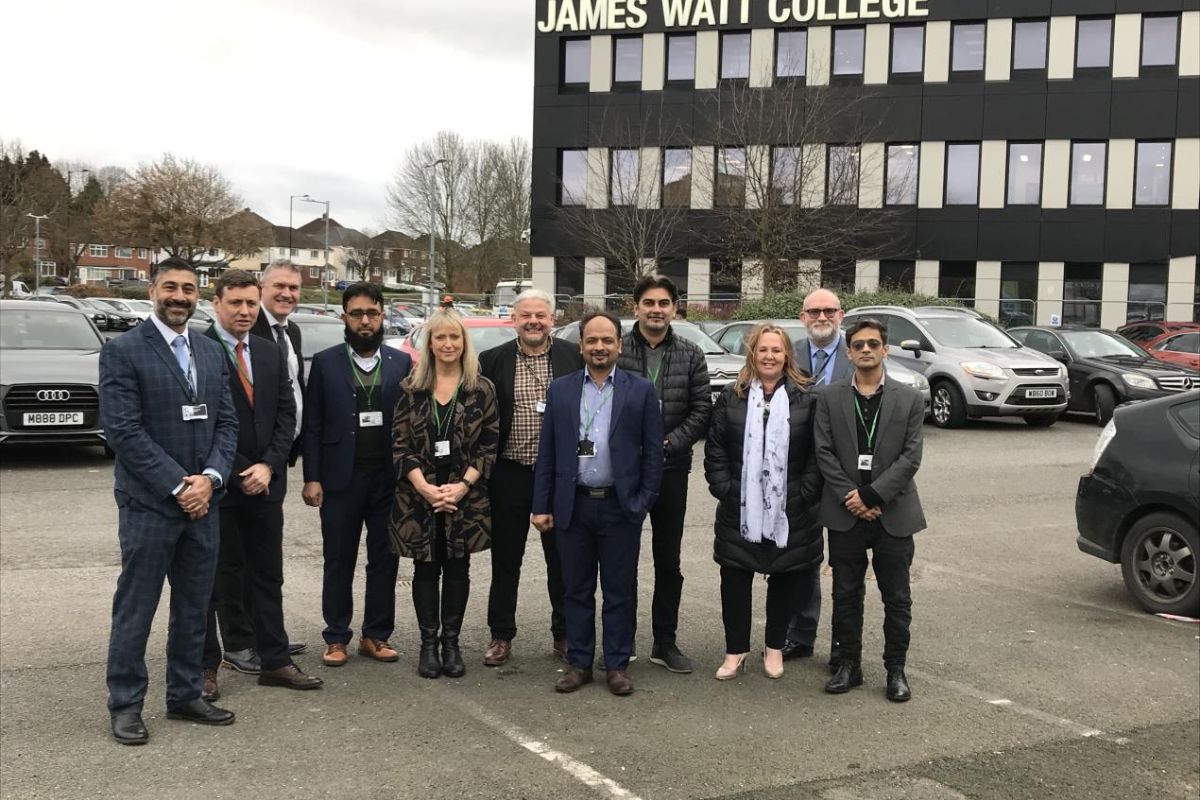BMet’s developments go global with new connections to leading Pakistani Skills Company

BMet is set to widen and diversify its student opportunities and pathways, by joining forces with the Khyber Pakhtunkhwa Economic Zones Development and Management Company (KPEZDMC) in Pakistan.
Key delegates from the leading organisation in Pakistan came to BMet’s James Watt College to mutually share their skills-based knowledge with business development and engineering representatives.
The event organised by BMet, alongside The British Council and The National Skills Academy – For Food and Drink, was held to collaboratively discuss and plan technical and vocational education and training through effective public-private partnerships (PPP).
The partnerships’ main purpose is to support the introduction of an industry advisory/taskforce group (IATG) to promote and implement a sectoral approach to skills in the Food and Beverages Sector in the KP Economic Zone.
Through the meeting at James Watt College, attendees were able to brainstorm how global exchange programmes – for example, via food and drink engineering apprenticeships – could be designed and run to benefit and enrich students’ learning and skills development in both BMet and in Pakistan.
The visit also included a site tour for the delegates, focusing on key areas within manufacturing and engineering. In addition, there was a focus group with food and drink maintenance engineering apprentices.
Speaking of the visit, Pakistani Delegate, Hazrat Bilal, said:
“It is my first-time visiting England, and I am pleased to be part of this exciting and progressive journey, that has scope for many advantageous pathways for students in Pakistan and the UK – the possibilities could be endless.
“Helping to address skills gaps globally is always important, so that we can prepare and train our students for their future careers.”
Here is what some of the apprentices had to say:
Yatin: “It was a good and rewarding experience for both BMet representatives and the Pakistani Delegates. Sharing best practice is always a good thing, alongside putting focus on finding ways to strengthen students learning across the world.”
Hiresh: “I was able to share my ideas and answer questions from BMet and the delegates and feel pleased to have been able to help. The session seemed very productive, and I am looking forward to finding out about future opportunities!”
There was a strong focus on seeking ways for students to acquire skills – both existing and those that would be required – to meet industry standard needs.
This will allow partners like BMet to globally identify industry demanded skills, including those required to adapt to new technology.
Randeep Sami, Vice Principal at James Watt College, and lead for apprenticeships, said:
“It was a very enriching, exciting and productive visit.
“In particular, it was good to collectively widen our scope by connecting with likeminded people who share our vision to find progressive ways to meet not only our student needs globally, but to also to fulfil industry needs around the world.”
More on the visit:
The visit was part of a wider project by The British Council and The National Skills Academy for Food and Drink. The first focus of the inception phase was to undertake an LMI focus phase to develop an understanding of:
· Existing Sector Strategies
· Current employment
· Skills gaps, future skills needs
· Technological changes
· Existing education/training provision
· Occupational structure, emerging jobs
· Industry projected growth
The second area of focus was to meet key stakeholders and identify potential roles and responsibilities of working with the IATG, to create a vision, mission, and key objectives for the newly formed IATG.
The third area was for the Khyber Pakhtunkhwa Economic Zones Development and Management Company (KPEZDMC) to visit the UK to identify best practice in skills training in the food and drink sector, visit industry and training providers to see how they have adopted automated processes, the curriculum and training programmes in place to drive productivity.











Responses